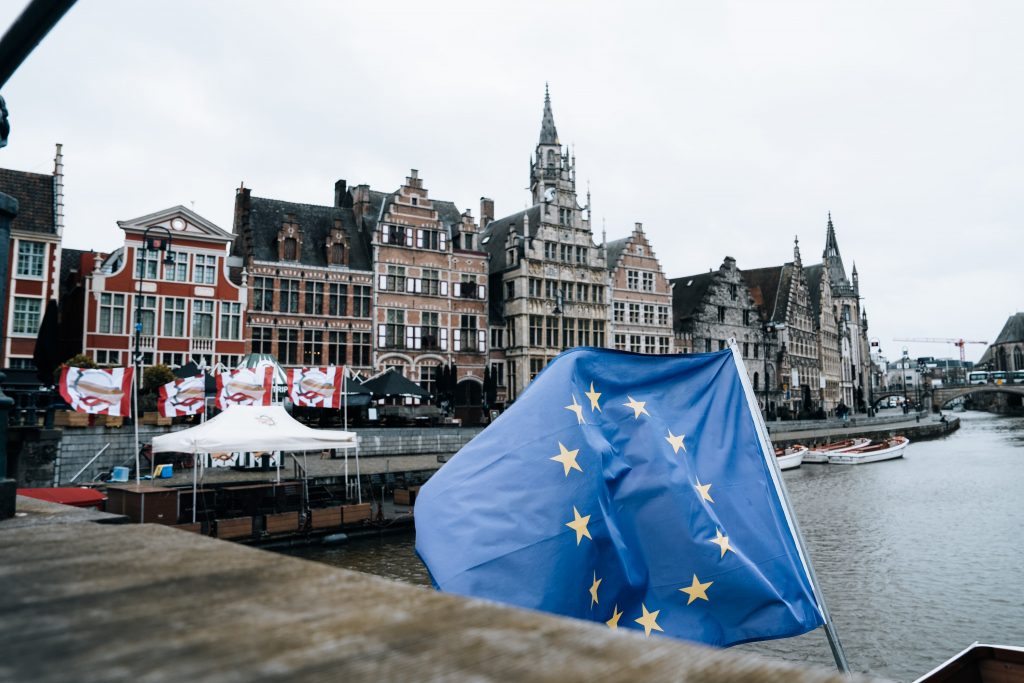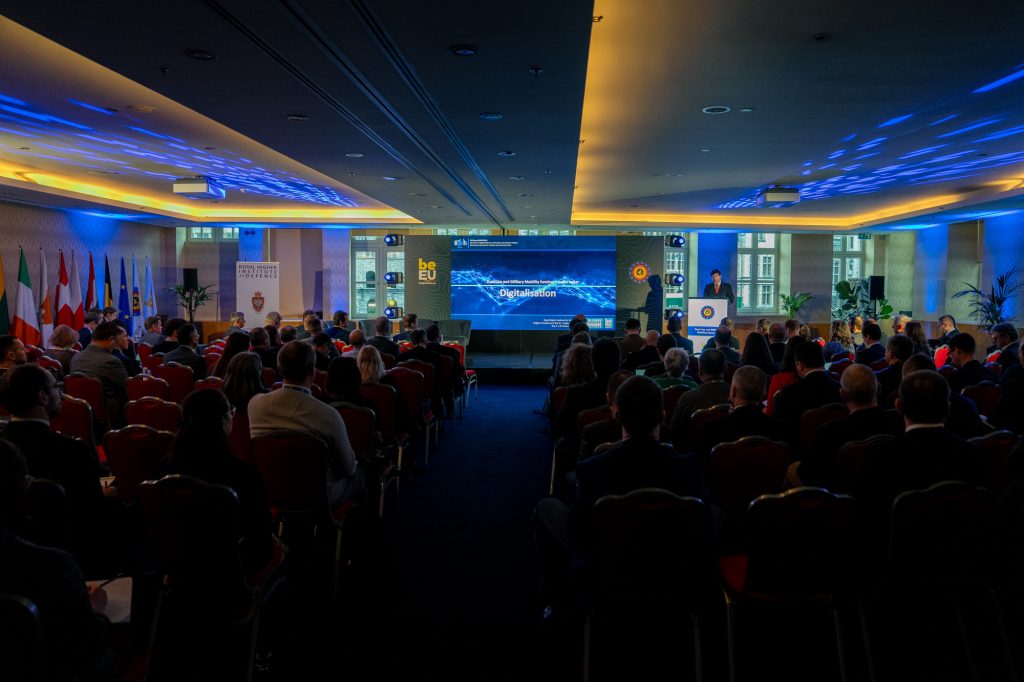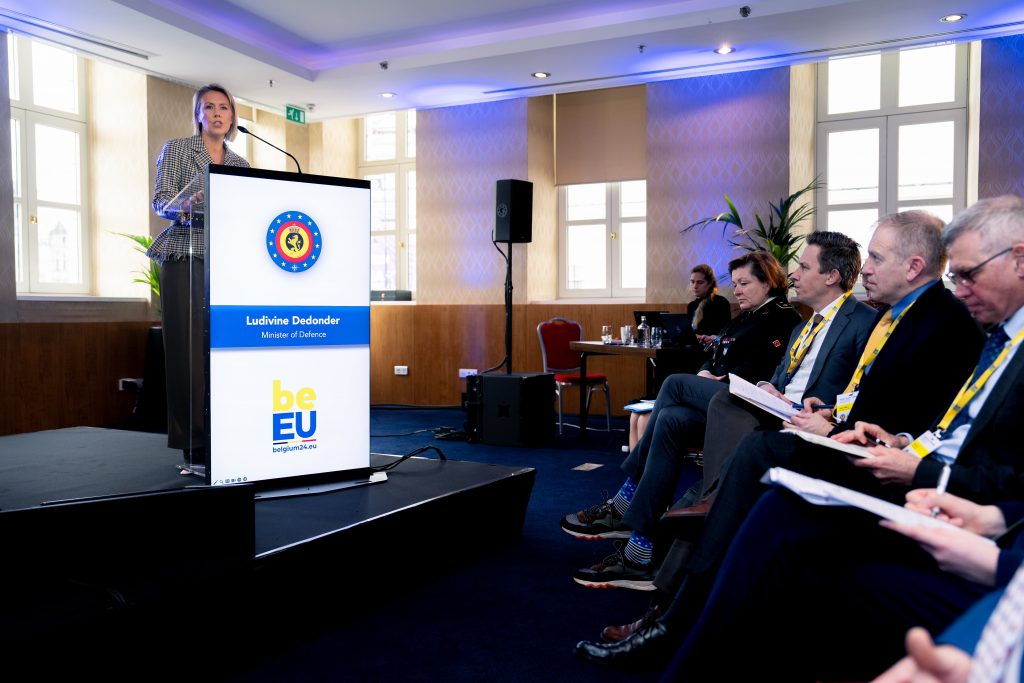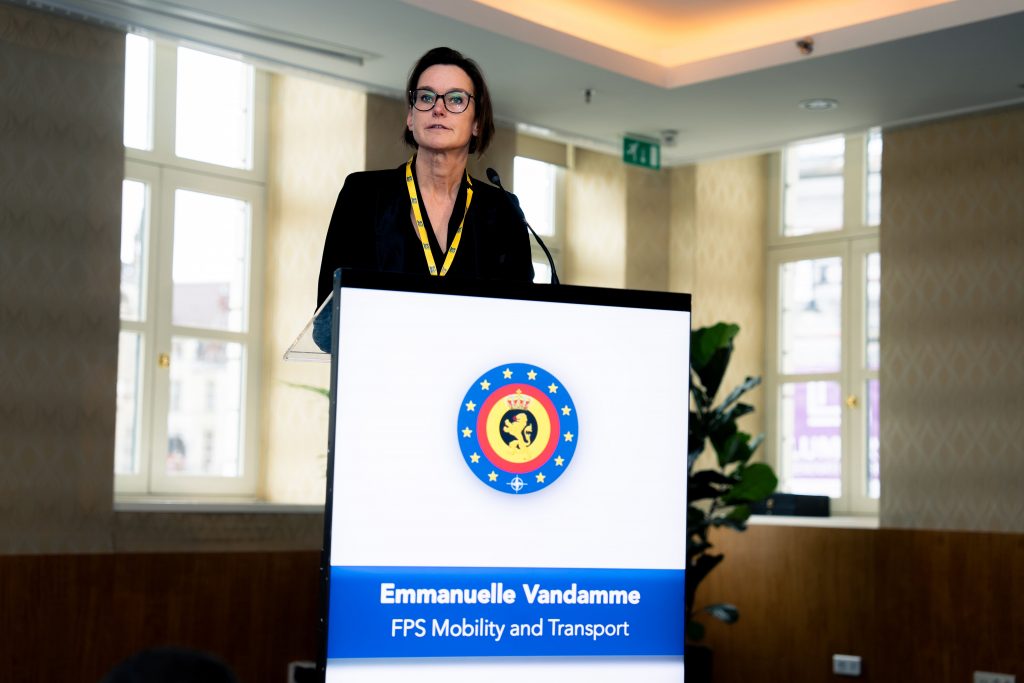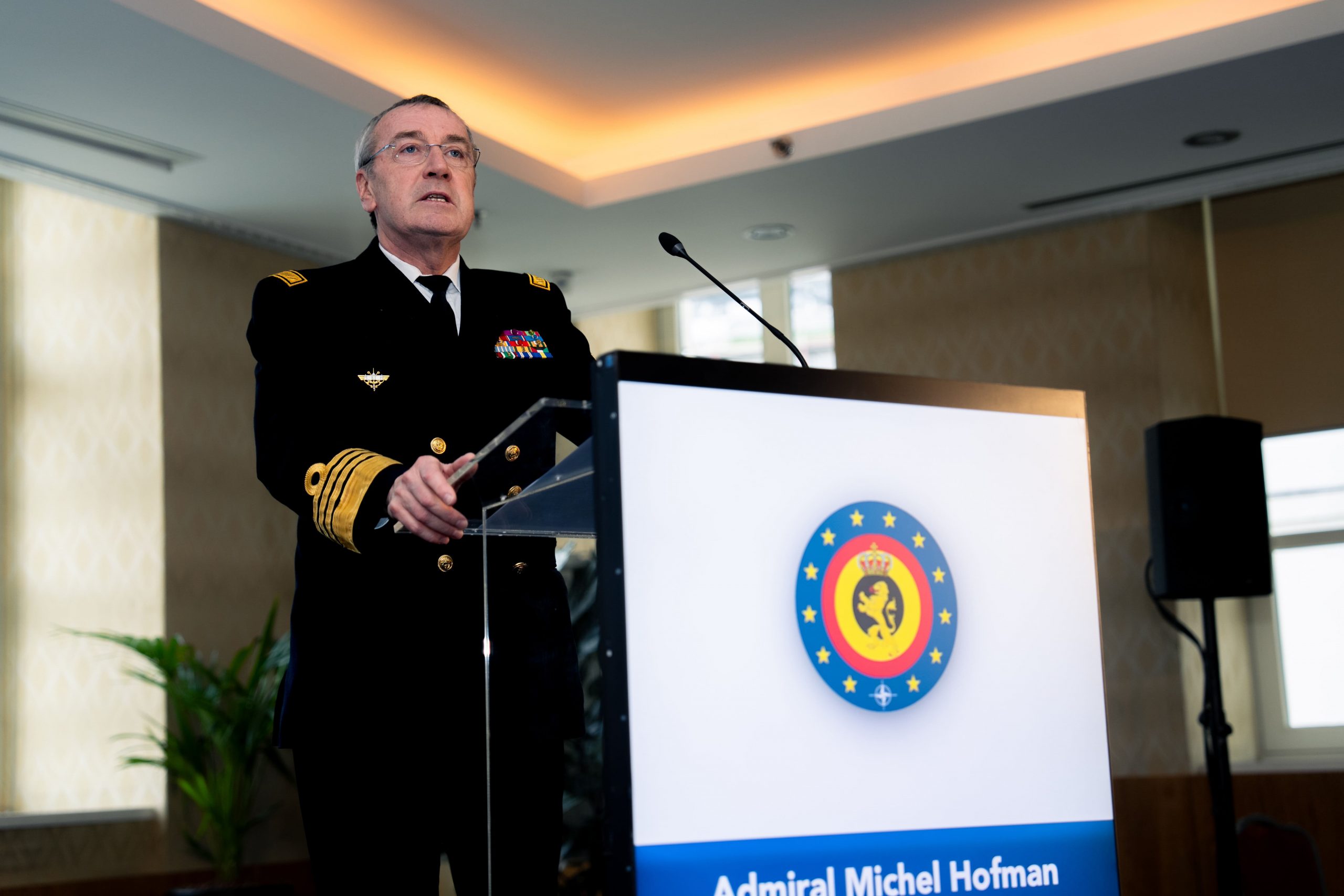
Seminar on Dual Use – Military Mobility
Op 22 en 23 februari werd een seminarie gehouden in Gent met een focus op capaciteiten voor tweeërlei gebruik in verband met militaire mobiliteit en dit in het kader van het Belgische voorzitterschap van de EU.
Hierbij kunt u mijn ‘closing remarks’ terugvinden.
The last few weeks many military and political authorities expressed their concerns about the geopolitical security situation and the potential perspectives with regard to the conflict in Ukraine. Their message was echoed last week by many other political and military leaders at the Munich Security conference. You could interpret those messages as being a call for extra budgets for Defence but instead I would invite you to read it as a call for more preparedness. And in my view, there is an extraordinary opportunity for the European Union. An opportunity to contribute and develop a solid enabled and enablement European Union, in support of the NATO allies and partners, in the spirit of its own strategic compass.
With the full-scale invasion of Ukraine two years ago, we as Western nations got a wakeup call nobody can ignore. After two years of conflict and an almost “frozen” frontline, it would be imprudent to speculate on the outcome of the war neither to speculate on any future intentions of Mr Poutine. Rationally we have to admit that many scenarios are still possible, but all analysts converge to a similar – potentially sombre – conclusion. And as professionals we must anticipate to all scenario’s, also the worst case. We should therefore prepare ourselves, our armed forces and our society. And we should prepare it now in peacetime whilst it is possible.
If you would ask me how much time we have to prepare, I couldn’t answer this question. I only know that now, at this moment, we are not sufficiently ready and much is required in many domains.
Being prepared and showing this to our adversaries is the best way to create the desired effect. The effect we are seeking is a credible DETERRENCE. Deterrence will be credible if we have robust and capable military forces available, equipped, enabled and that we are capable to deploy and sustain in all “corners” of our continent. In 2022, shortly after the invasion, the Belgian Defence was to deploy within 5 days a 250 men strong detachment with vehicles, equipment and ammunitions, from their barracks in the Ardennes to the Black Sea coast in Romania, crossing 5 borders by rail, road and air. I speak about a small Belgian detachment, not about a US brigade or more which is a problem of another magnitude. Despite this, the practical problems encountered in this deployment were numerous. These examples bring me very naturally to the topic of this seminar, military mobility which is only an aspect of the broader enablement challenge that we face. So what do we as military and civilian leaders actually need to take care of? In simplistic terms, we need to be able to get the right forces in the right place at the right time and we need to protect that flow of soldiers and material across Europe.
Belgium, as an important crossroad in Europe, as a receiving and transit nation, understands fully the critical need for swift and effective military mobility. In times of crisis, whether natural disasters or threats to our security, the ability to rapidly deploy troops and resources is not just a strategic advantage, it is imperative. This is where the concept of dual use becomes crucial!
Dual use capabilities lie at the heart of our modern defence strategy. It is the convergence point where civilian infrastructure and military readiness intersect for the benefit of both realms. In Belgium, we have seen the tangible benefits of this approach, where investments in our transportation networks, airports, harbours and communication systems serve not only our civilian economy but also bolster our military’s ability to respond with agility and precision.
However, to fully exploit the potential of dual use, we must cooperate—both within our borders and across international alliances. NATO and the European Union stand as pillars of security and stability on our continent, and it is imperative that we foster our energy and efforts to enhance military mobility.
Moreover, the cooperation between military and civilian institutions is essential. Our civilian infrastructure—from highways to railways to airports and harbours and waterways—forms the backbone of our military mobility. By working closely with our civilian partners, public and private, we can optimize these assets for dual use. Making sure that they are efficient for everyday commerce but also adequate for military needs. Interoperability is definitely not a strictly military concept.
This partnership requires truly a commitment to communicate, to coordinate, and for mutual understanding. Military planners must engage and are engaging with transportation authorities, infrastructure developers, and industry leaders to align our objectives and leverage our collective expertise. Through joint training exercises, tabletop simulations, and regular dialogues, we can build trust and foster a culture of cooperation that benefits us all.
Additionally, we must not overlook the critical need to protect our infrastructure. Military can and do assume some tasks in this domain but part of the responsibility lays with the “owner”. (Force) Protection measures, cybersecurity protocols, and resilience strategies are essential components of our defence posture. The protection of our critical infrastructure—from transportation hubs to communication networks—is paramount to ensure the continuity of operations in the face of potential threats. And this means that every one of us, not only the military, needs to be ready. Not only in times of conflict, but also in peacetime and maybe especially during the “in between time” in which we live today.
Finally, I can urge also for a pragmatic approach to deregulation. Bureaucratic hurdles and red tape can stifle the efficiency of our military mobility. By identifying and removing unnecessary barriers to movement—whether they be customs procedures, border crossing, licensing requirements, or infrastructure limitations—we can unlock new levels of responsiveness and resilience.
Belgium stands ready to contribute firmly to this endeavour. We are committed to foster partnerships with our civilian partners and to advocate for streamlined regulations that enhance our collective security.
You will have understood that I am a strong believer in cooperation. Cooperation doesn’t hurt, it is a matter of mindset and attitude. Cooperation should be seen in the broad sense of the word: between NATO and EU, between military and civilians, between the nations in Europe and, in Belgium, between all levels of governments.
In closing, I call upon each of us to recognize the urgency of our mission. The challenges we face require nothing less than a united front. Let us seize this opportunity for cooperation and let us work together towards a safer, more secure future for all.
